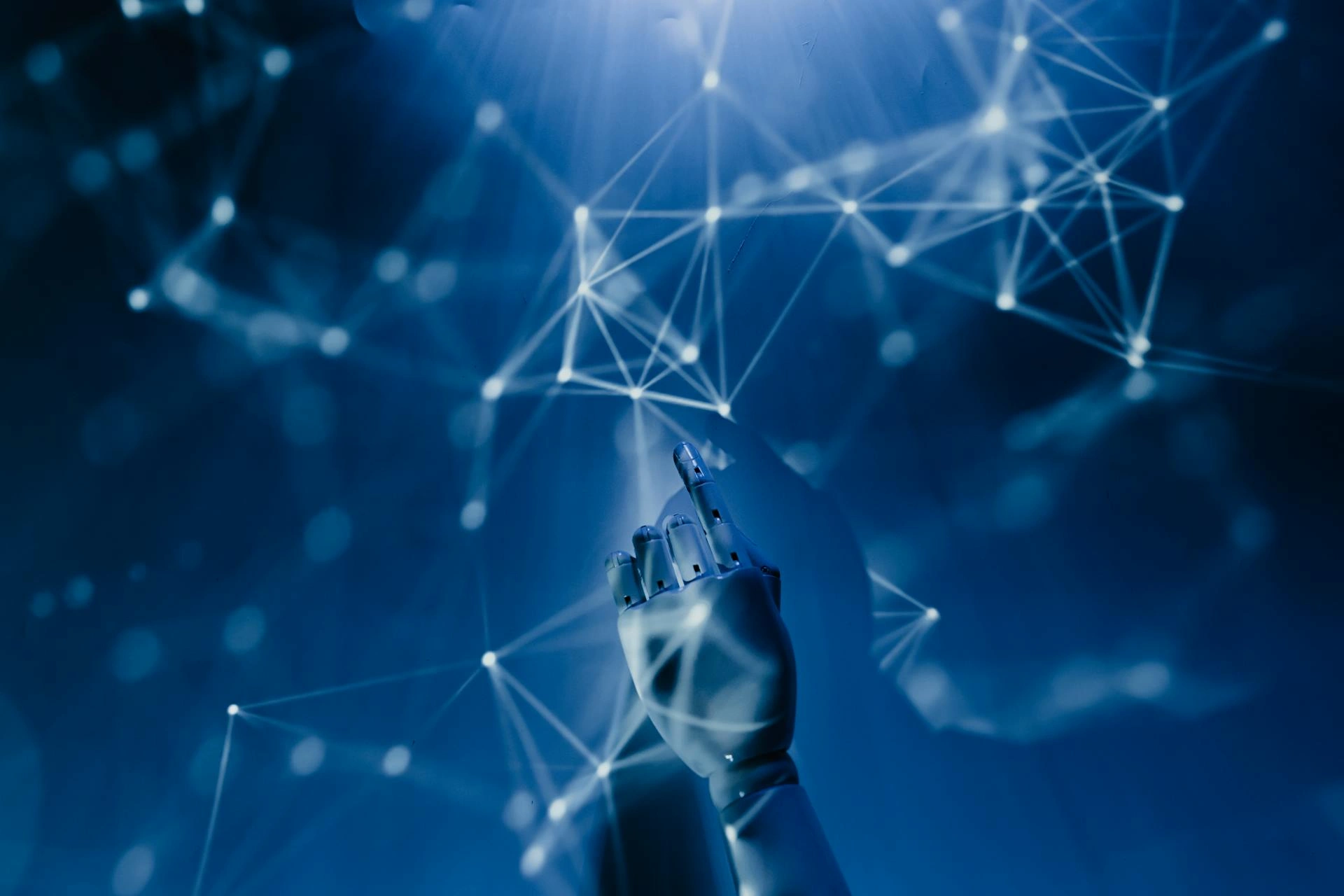Digital transformation, misunderstood

John E. Kaye
- Published
- Home, Technology

Humans are not machines, so why let technology turn us into them? Anastasia Dedyukhina looks at how we’re becoming digitally overwhelmed
Meet David, a senior executive at a leading telecoms company. Known for his outstanding decision-making and relationship-building skills, David’s rise to the top has been remarkable. However, recently he’s been questioning his ability to stay in the game. Burdened by back-to-back international calls, his working hours regularly extend past midnight and his frantic routine of deliverables and deadlines often means meals are missed and daylight exposure is sparse. He has also started questioning his leadership style, as he often finds himself “barking” at employees due to the little time and mental resources left to him. Saying that he is burnt out is an understatement.
Getting employees future-ready
At my company Consciously Digital we frequently work with leaders like David, and we keep seeing the same pattern: smart, capable individuals feeling overwhelmed, losing their sense of direction, and blaming it on their workplace. These leaders lack time and energy for deep thinking and employee development – core aspects of leadership. Instead, they are constantly firefighting.
The pressure of being “always on” – not allowing yourself to slow down and reflect, attempting to control an ever-increasing flow of information, and struggling with visibility over hybrid and remote teams – is pushing leaders to burnout and a surrender of their power to technology. Indeed, a recent report by Microsoft revealed that more than 53% of managers (and 48% of employees) report feeling burnt out at work.
But how do you get your employees future-ready when the tech progress is becoming faster than ever and your leaders, like David, are already being pushed to their limits.
The future of work is not about digitising everything. In fact, according to McKinsey, digital skills form only a small part of the 56 qualities needed to thrive in the future world of work, with the majority focused on developing our human attributes like effective communication, self-regulation, creative thinking, and teamwork.
However, the current work environment does not support the development of these skills. One cannot solve problems, treat others with empathy and clearly envision the future (and hence, be a good leader), when they are digitally overwhelmed.
Are you paying attention?
Psychology research in the US says an average knowledge worker gets interrupted every 40 seconds, and half of these interruptions are due to technology – incoming emails, notifications etc. And according to Gartner, hybrid and remote workers are more than twice likely to be digitally distracted compared to those working from the office, as they have to deal with larger information flows.
Unlike computers, humans don’t switch attention well (only 2.5% can properly multitask). This constant switching of tasks leads to higher workload, more stress, frustration and mental effort. We also end up working longer hours, still receiving messages deep into the evening, when we should be resting. In fact, the mere presence of a smartphone is believed to deplete our cognitive abilities.
In one experiment, participants were asked to put their phones in different locations and solve puzzles to test their problem-solving skills. Although all phones were on silent, the group that consistently performed better was the one without their phones.
This lack of focus also affects our ability to pursue complex goals. To successfully achieve a long-term goal, we need to block out all short-term distractions. When their attention is stretched, executives also end up suffering from decision overload, as small decisions work the brain the same amount as big ones – so if you’ve started your day by checking your 100 emails, you have already exhausted your brain.
The lack of attention also affects our ability to build relationships with other people and truly pay attention to them. Empathy and compassion are slow neural processes, and need time and attention to unfold. In the future of work, leaders will need to spend more time nurturing top human talent and developing relationships with them. However, it’s impossible if a leader feels overwhelmed, constantly busy, and hyper-connected.
Are you encouraging innovative thinking?
The key to preparing your workforce for the future of work is to understand how the human brain works. First, humans are cyclical. Depending on the phase of our attention cycles, we are focused the most and the least – and we need to optimise our workday and schedule accordingly.
Second, in order to develop cognition skills, we need to let our minds wander and daydream. The part of the brain responsible for these skills is called the default network. It gets activated when we do passive tasks, rather than staying focused. So, if we simply gaze out of the window, we can put our brains on the path to creativity.
When our minds are busy with meaningless or ruminating thoughts, our brain defaults to the least interesting, and most obvious solution. No headspace means no creativity. In other words, when we expect employees to monitor their emails, instantly reply on Slack and jump between Zoom meetings, and at the same time come up with bright ideas, we set them up for failure. As companies will be embracing further digitisation and integration of the AI, the role of leaders will be changing more and more towards encouraging innovation and deciding, which jobs should be done by an algorithm vs. human, and how to get the most from both. You cannot control innovation and creativity; you can only create the suitable environment for it.
The slow leader
To help employees stay relevant in the future of work, leaders need to embrace the human way of being productive, which is very different from the computer way. The biggest mistake is treating employees like computers, expecting them to be “always on” – this makes us behave like inferior copies of machines.
It is your responsibility as a leader to reclaim your own ability to lead by focusing on what’s really important and reducing your own digital overload so that you can help your people do the same. We urgently need more “slow leaders”, as counterintuitive as it may feel. Busy doesn’t mean productive. Slow doesn’t mean inefficient. It means that you know what’s crucial, that you take time to make good decisions, and develop and express empathy.
Start with small things, like setting up breaks between video calls. Back-to-back meetings decrease your ability to stay focused and engaged. Second, schedule your “daydreaming” breaks, when you aren’t doing anything actively, and your brain is wandering. Do not fill these breaks with reading news or social media, just let your mind wander.
Foster an environment of uninterrupted focus and lead it through personal example. Block regular time for “deep work”, staying focused on the most important strategic tasks without being interrupted or switching them. Encourage employees to do the same and make the number of deep work hours one of their KPIs. Support your attention cycles by planning your most cognitively demanding tasks for when you are at your attention peak. Restore your attention through physical activity, proper diet and regular sleep. Define when you are available and when you’re not, and make it clear to others.
And breathe
There is a big temptation, not to mention a trend, to use tech solutions to solve these problems, like apps that tell you when and how to stay focused. However, research shows that those only work for people with certain characteristics, whereas for others they can increase burnout, as they end up not taking necessary short breaks. Digital transformation isn’t just about embracing technology across the board – it’s about ensuring that humanity remains at the heart of the tech progress.


About the author
Dr Anastasia Dedyukhina is a digital wellbeing expert, keynote speaker, author of ‘Homo Distractus’, and the founder of Consciously Digital.
RECENT ARTICLES
-
 Europe opens NanoIC pilot line to design the computer chips of the 2030s
Europe opens NanoIC pilot line to design the computer chips of the 2030s -
 Building the materials of tomorrow one atom at a time: fiction or reality?
Building the materials of tomorrow one atom at a time: fiction or reality? -
 Universe ‘should be thicker than this’, say scientists after biggest sky survey ever
Universe ‘should be thicker than this’, say scientists after biggest sky survey ever -
 Lasers finally unlock mystery of Charles Darwin’s specimen jars
Lasers finally unlock mystery of Charles Darwin’s specimen jars -
 Women, science and the price of integrity
Women, science and the price of integrity -
 Meet the AI-powered robot that can sort, load and run your laundry on its own
Meet the AI-powered robot that can sort, load and run your laundry on its own -
 UK organisations still falling short on GDPR compliance, benchmark report finds
UK organisations still falling short on GDPR compliance, benchmark report finds -
 A practical playbook for securing mission-critical information
A practical playbook for securing mission-critical information -
 Cracking open the black box: why AI-powered cybersecurity still needs human eyes
Cracking open the black box: why AI-powered cybersecurity still needs human eyes -
 Tech addiction: the hidden cybersecurity threat
Tech addiction: the hidden cybersecurity threat -
 Parliament invites cyber experts to give evidence on new UK cyber security bill
Parliament invites cyber experts to give evidence on new UK cyber security bill -
 ISF warns geopolitics will be the defining cybersecurity risk of 2026
ISF warns geopolitics will be the defining cybersecurity risk of 2026 -
 AI boom triggers new wave of data-centre investment across Europe
AI boom triggers new wave of data-centre investment across Europe -
 Make boards legally liable for cyber attacks, security chief warns
Make boards legally liable for cyber attacks, security chief warns -
 AI innovation linked to a shrinking share of income for European workers
AI innovation linked to a shrinking share of income for European workers -
 Europe emphasises AI governance as North America moves faster towards autonomy, Digitate research shows
Europe emphasises AI governance as North America moves faster towards autonomy, Digitate research shows -
 Surgeons just changed medicine forever using hotel internet connection
Surgeons just changed medicine forever using hotel internet connection -
 Curium’s expansion into transformative therapy offers fresh hope against cancer
Curium’s expansion into transformative therapy offers fresh hope against cancer -
 What to consider before going all in on AI-driven email security
What to consider before going all in on AI-driven email security -
 GrayMatter Robotics opens 100,000-sq-ft AI robotics innovation centre in California
GrayMatter Robotics opens 100,000-sq-ft AI robotics innovation centre in California -
 The silent deal-killer: why cyber due diligence is non-negotiable in M&As
The silent deal-killer: why cyber due diligence is non-negotiable in M&As -
 South African students develop tech concept to tackle hunger using AI and blockchain
South African students develop tech concept to tackle hunger using AI and blockchain -
 Automation breakthrough reduces ambulance delays and saves NHS £800,000 a year
Automation breakthrough reduces ambulance delays and saves NHS £800,000 a year -
 ISF warns of a ‘corporate model’ of cybercrime as criminals outpace business defences
ISF warns of a ‘corporate model’ of cybercrime as criminals outpace business defences -
 New AI breakthrough promises to end ‘drift’ that costs the world trillions
New AI breakthrough promises to end ‘drift’ that costs the world trillions



























